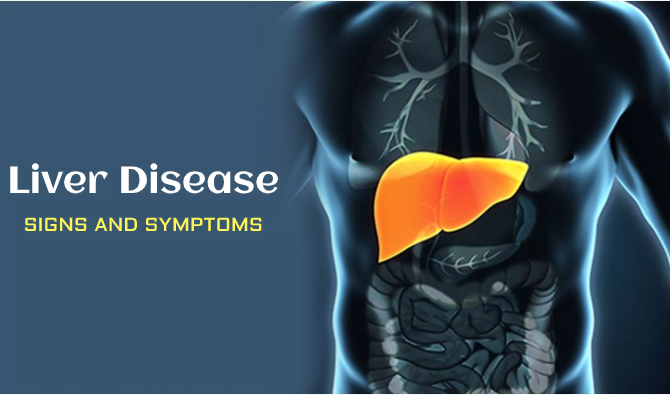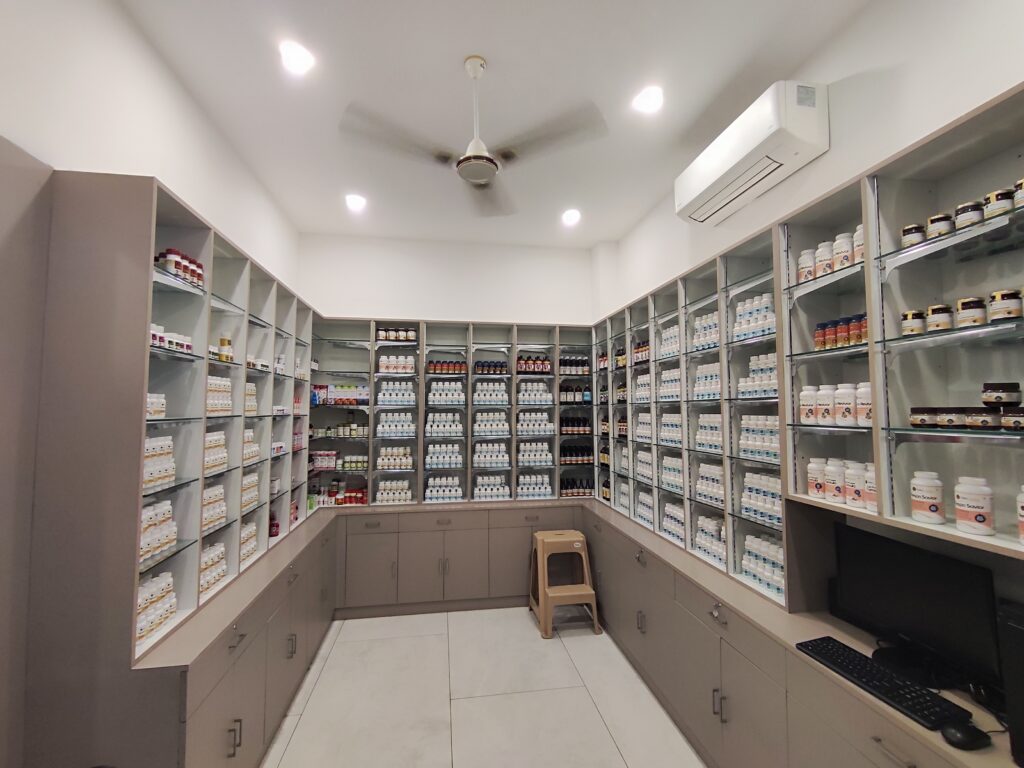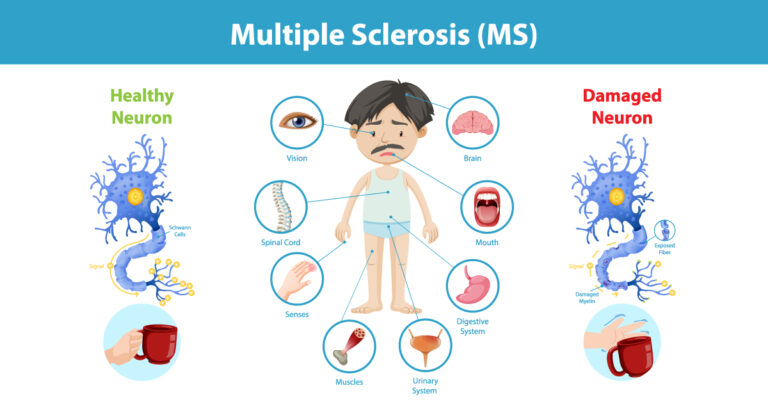Multiple Sclerosis – The relapsing, remitting, and progressive disorder
Multiple Sclerosis (MS) is one of the most common auto-immune disorders. In Ayurveda, there is no direct description of Multiple Sclerosis but based on the similarity of signs and symptoms, it is co-related to “Snayusadam with Nadibalakshayam” or aggravation of “Vata in Sanayu” or “AsthiMajjagata Vata”. MS diseases was first described by Jean-Martin Charcot in 1868. Approximately 2.5 million people around the world are affected by this disease and 350 thousand individuals are affected in the United States of America alone. Its onset occurs between 20-40 years of age and women are diagnosed with Multiple Sclerosis three times more than men are (AANN,2011). MS is more prevalent in regions with lower temperatures. It is a chronic and progressive disease, which is characterized by selective destruction and prolonged inflammation of central nervous system (CNS), which includes brain and spinal cord. It is a demyelinating disease means it damages the myelin sheath i.e., the insulating covering that protects the nerve fibers of brain, spinal-cord, and optic nerve. When suffering from MS, one’s immune system attacks and destroys the myelin sheath, as a result, communication between neurons of brain breaks down, which gives rise to cognitive, sensory, and motor problems. In this disease patient is not able to control his limbs and ailments like visual disorders and facial paralysis may occur.
Causes of Multiple Sclerosis:
Modern point of view:
Exact cause of Multiple Sclerosis is unknown. However, following are some reasons that may cause MS:
- Interplay between host immune response and viral infection
- breach in blood brain barrier in genetically predisposing people due to higher number of immune cells in patient
- Vitamin B12 deficiency: Vitamin B is used during the production of myelin in our bodies. So, lack of Vitamin B, specifically B12, increases the risk of neurological disorders.
- Vitamin D deficiency: Low level of Vitamin D in our body affects the working of immune system, so people who are less exposed to bright sunlight are vulnerable
- Exposure to cold climate area
- Infections such as mumps, measles, rubella (MMR), herpes virus type-6 and Epstein-Barr virus
- Stress
- Fatigue
- Stress during labor
Ayurvedic point of view:
According to Ayurveda, one of the main causes behind the auto-immune diseases is ‘Ama’ that cannot be ignored. Ama deposited in the body is attached to the nerve tissue and the immune system tries to remove it but nerve tissue has difficulty to separate from Ama attached to myelin sheath. Injury to Majja Dhatus (nerve sheaths) at any time prior to manifestation of disease is also a cause of MS.
Myths related to Multiple Sclerosis:
Some people believe that Multiple Sclerosis is caused by using artificial sweeteners, being around pets, exposure to heavy metals, physical trauma, allergies, and vaccines, but years of research has shown that there is no link between MS and above said activities.
Multiple Sclerosis Signs & Symptoms
Modern point of view
Symptoms of MS involve:
- Bilateral hand numbness
- “Needle and pins” sensation
- Localized tingling
- Generalized heat intolerance
- Urinary frequency and urgency
- Heavy, clumsy, stiff limbs
- Action tremor
- Facial pain
- Hemifacial– spasm
- Lhermitte’s symptom i.e., momentary electric shock like sensation. This symptom is evoked by neck flexion
- Diplopia
- Blurred vision
- Numbness i.e., ascending starting from the feet
- Abnormality of coordination and gait
Ayurvedic point of view
When suffering from MS, Dhatus are damaged and demyelination occurs and as a result, three types of Kshaya occur that lead to various symptoms:
Kapha Kshaya: Decreased Kapha leads to symptoms like
- Hridrava (Palpitation)
- Sandhi Shethilya (Laxity of Joints)
- Bhrama (Giddiness)
Majjadhatu Kshaya: Decreased Majja leads to symptoms like-
- Timir Darshana (Dimness of vision)
- Bhrama (Giddiness)
- Asthisoushirya (Osteoporosis)
Oja Kashya : Decreased Oja leads to symptoms like
- Ati Chintan (Excessive thoughts)
- Bala Kshaya (Loss of strength)
- Varna Hani (Loss of complexion)
- Rukshta (Excessive dryness in body)
- Mansik Bhaya (Phobias)
Ayurvedic treatment of Multiple Sclerosis
If MS is diagnosed in an early stage, then the patient can make a full recovery. It is easy to reverse the pathology so that it can be cured easily, and it gets more and more difficult to treat with the passage of time. Multiple Sclerosis becomes incurable after nerve myelin is lost and has damaged the patient’s body beyond ability to repair.
Treatments that can be applied are:
- Langhana Therapy (Fasting): This therapy is used to remove Dosha accumulation and Ama. Langhan therapy is adopted in patient whenever there is heaviness in body. It may be due to Ama deposited in the body or due to Kapha increase in the body. Langhana therapy not only brings lightness in body, but it also serves purpose of Deepan, Pachana and clears Strotas i.e., body channels, which helps in reducing Ama that is the main cause of MS.
- Kevala Vata Chikitsa: Kevala Vata Chikitsa means treatment of Vata in specific manner without the association of other Doshas by taking care of site of treatment.
- Vata Shaman: Vata Shamana means using conservative therapy i.e., use of specific herbs, food and lifestyle habits that helps to balance aggravate Vata and also maintain balance of Kapha and Pitta also.
- Nadi Chikitsa: Nadi Chikitsa is the treatment of the demyelination of nerves tissues. Various treatment like Sarwanga Abhyanga i.e oleation therapy, Pinda Swedana i.e sudation therapy, Matra basti etc used under this treatment.
- Akshi Tarpana (Eye rejuvenation)
- Ksheerbasti: In Ksheer Basti, enema is medicated with Milk and Ghee.
- Shirodhara: Shiro means head and Dhara means flow, it is unique technique where medicated liquid is pour over forehead in specific manner.
- Ksheerdhara: In this procedure specific formulated medication with milk is pour over whole body or in specific part of body.
- Rasayana Chikitsa (Rejuvenation Therapy)
- Different Panchkarma procedures can be applied like Shastika, Shali, Pinda, Sweda, Sarvang Abhyanga, Basti, and Vashpa Sweda.
Ayurvedic line of treatment for Multiple Sclerosis is flexible and modified according to the tolerance and necessity of the patient.
Herbs to Treat Multiple Sclerosis:
Single herbs that can be used in the treatment of Multiple Sclerosis are:
- Guduchi (Tinospora cordifolia)
- Jeevanti (Leptadenia reticulata)
- Bhanga (Cannabis sativa)
- Draksha (Vitis vinifera)
- Ashwgandha (Withania somnifera)
- Yashtimadhu (Glycyrrhiza glabara)
- Vidari (Pureria tuberosa)
- Ginger (Zinziber officinale)
- Tagar (Valleriana wallichi)
- Turmeric (Curcuma longa)
- Basant (Hypericum perforatum)
- Kalajaji (Nigella sativa)
- Kesar (Crocus sativus)
- Ginko (Ginkgo biloba)
Classical formulation for Multiple Sclerosis:
The classical formulation described for other disorders can be applied in Multiple Sclerosis according to different symptoms:
- Dashmool Kashayam i.e indicated in Vata-Kapha condition
- Mahamashaadi Taila and Rasnadi Taila for Shirodhara
- Ashwgandha and Dashmool Paaka for Ksheerdhara
- Dhanwantri Kashyam i.e indicated in Rheumatic problems and neurological disorders.
- Bhadra Dravadi Kashyam i.e indicated in Keval Vata and in painful conditions.
- Dhana Dhanyadi Kashyam i.e indicated in Aakshepaka Vata and Ardita.
- Jeevantiadi Ghrita and Triphala Ghrita for Akshi Tarpana
Diet and lifestyle improvement:
- Include green tea and black tea in your daily routine. Keep in mind that its intake is limited to 200ml/day.
- Avoid coffee and caffeine products.
- Stop intake of sweet carbonated beverages.
- Reduce or eliminate alcohol from the diet. Wine can be taken but not on a daily basis and intake must be limited to 200ml/week.
- Include immunity-boosters in daily routine like spinach, wheat gram, oats, papaya, carrot, walnut, hazelnut, pumpkin, avocado etc.
- Cook food in coconut or olive oil.
- Use Deepan Paachana Dravya, digestive spices like Saunf, Chitrak, Anardana etc.
- Include ginger tea in your diet.
- Quit smoking. Keep in mind that smoking must be reduced gradually. Sudden quitting may cause an attack or relapse.
- Avoid sweets and chocolates.
- Avoid eating and snacking in between meals.
- Follow a proper routine.
- Start the day with a glass of lukewarm water. Drink at least 8-10 glasses of water every day.
When to see a Doctor:
Confirming the diagnosis is a very important step in Multiple Sclerosis. If a person has one or more symptoms mentioned below, he/she must visit the doctor for a proper diagnosis of MS:
- Double vision
- Vision loss in both eyes
- Acute numbness in the limb
- Activity related fatigue
- Poor judgement
- Difficulty reasoning and solving problems
- Lassitude also known as MS fatigue
- Acute tingling in the limb
- Acute numbness in the limb
- Acute paralysis along one side of the body or in the legs
Conclusion:
Ayurvedic treatment, lifestyle, and dietary modification provide an important role in increasing life expectancy in Multiple Sclerosis. Integration of both modern and ayurvedic treatment is necessary to execute the treatment plan.











